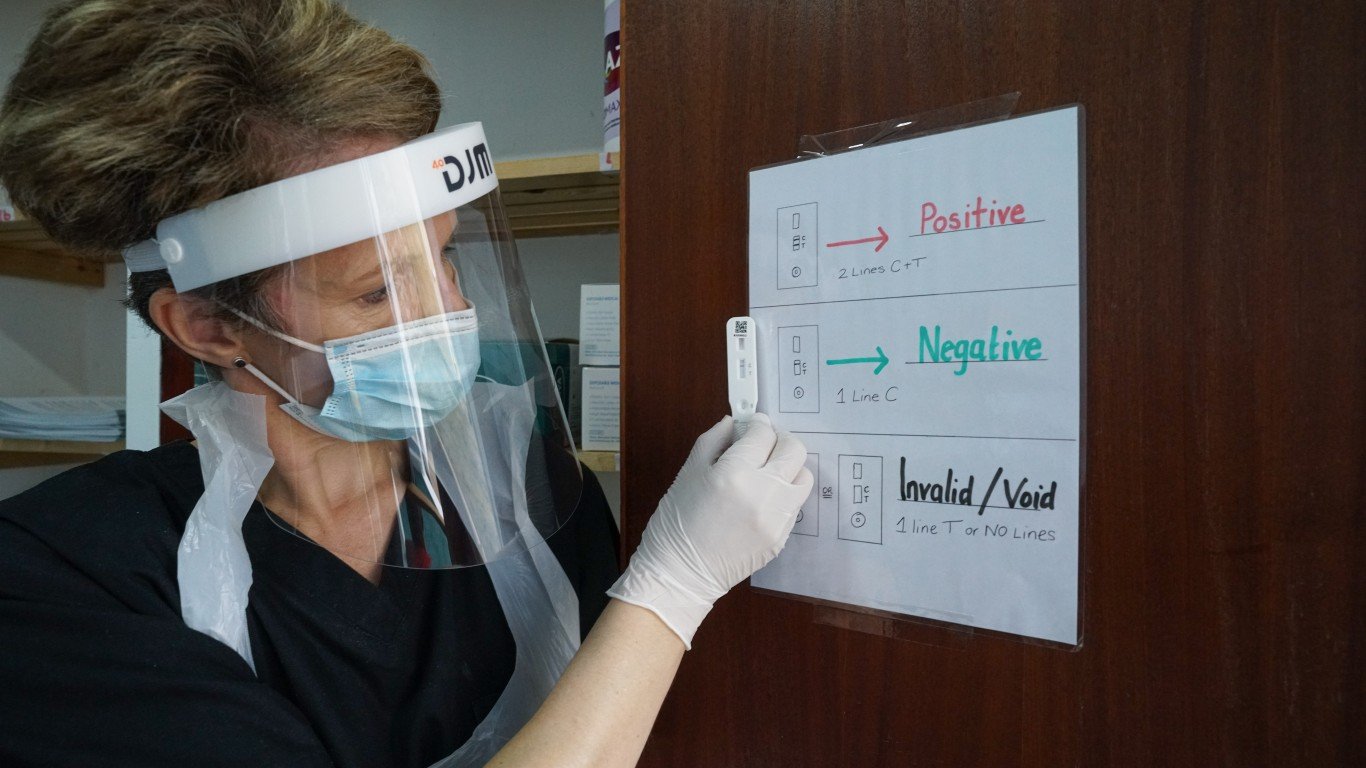

The COVID-19 pandemic’s spread has started to slow, but only after months of devastation. Fatal cases are 515,138 and confirmed cases are 28,761,741. Less than two months ago, confirmed cases were rising by over 200,000 a day, and fatal ones by 4,000. Those numbers have essentially be halved. Many scientists believe that the confirmed case county remains much too low because of poor testing practices, and asymptomatic carriers. At this point, the U.S. accounts for about 25% of the world’s cases and 20% of global deaths.
Currently, worries have arisen that cases could surge again. Social distancing and mask-wearing may drop as people believe that vaccinations have made America safer. However, the vaccination rate remains low, and only about 15% of adults in the U.S. have received at least one dose, and about 6% have gotten two shots. So far, 94,300,910 doses have been delivered in the U.S. and 70,454,064 shots have been given.
The other wildcard when it comes to spreading and the efficacy of vaccines is variants. The CDC tracks these, and so far has identified three. One, which appears to have originated in the U.K. spreads aggressively. Another not tracked by the CDC yet, which was discovered in California, may also spread quickly.
It is worth remembering where the first case of a disease, that has killed more people than American combatants who died in World War I, World War II and the Vietnam War together, was discovered.
The pandemic began to spread in the U.S. in January 2020. Scientists pinpointed the first American case they can identify several months ago, and the opinion it was the first has not changed.
The New England Journal of Medicine ran a paper by several scientists on March 5, 2020, entitled “First Case of 2019 Novel Coronavirus in the United States”.
The paper identifies Wuhan, China as the place where the first cases were discovered. “On January 7, 2020, Chinese health authorities confirmed that this cluster was associated with a novel coronavirus, 2019-nCoV,” the paper reads. The authors added, “As of January 30, 2020, a total of 9976 cases had been reported in at least 21 countries,7 including the first confirmed case of 2019-nCoV infection in the United States, reported on January 20, 2020.” And, as for the details of the first U.S. case:
On January 19, 2020, a 35-year-old man presented to an urgent care clinic in Snohomish County, Washington, with a 4-day history of cough and subjective fever. On checking into the clinic, the patient put on a mask in the waiting room. After waiting approximately 20 minutes, he was taken into an examination room and underwent evaluation by a provider. He disclosed that he had returned to Washington State on January 15 after traveling to visit family in Wuhan, China.
By January 20, the CDC has confirmed the diagnosis. By January 30, the patient, while still hospitalized, no longer had symptoms. How the disease spread across the U.S. is less certain. However, among the hardest-hit states early were Massachusetts, New York, and Washington. Some of these cases came from Europe.
Because of vaccines, the forecast that 700,000 Americans would die by early summer issued by the Institute for Health Metrics and Evaluation, which gives highly regarded forecasts, has been lowered to about 573,000.
Click here to see which states are doing best at COVID-19 vaccination.
Take This Retirement Quiz To Get Matched With A Financial Advisor (Sponsored)
Take the quiz below to get matched with a financial advisor today.
Each advisor has been vetted by SmartAsset and is held to a fiduciary standard to act in your best interests.
Here’s how it works:
1. Answer SmartAsset advisor match quiz
2. Review your pre-screened matches at your leisure. Check out the advisors’ profiles.
3. Speak with advisors at no cost to you. Have an introductory call on the phone or introduction in person and choose whom to work with in the future
Take the retirement quiz right here.
Thank you for reading! Have some feedback for us?
Contact the 24/7 Wall St. editorial team.



